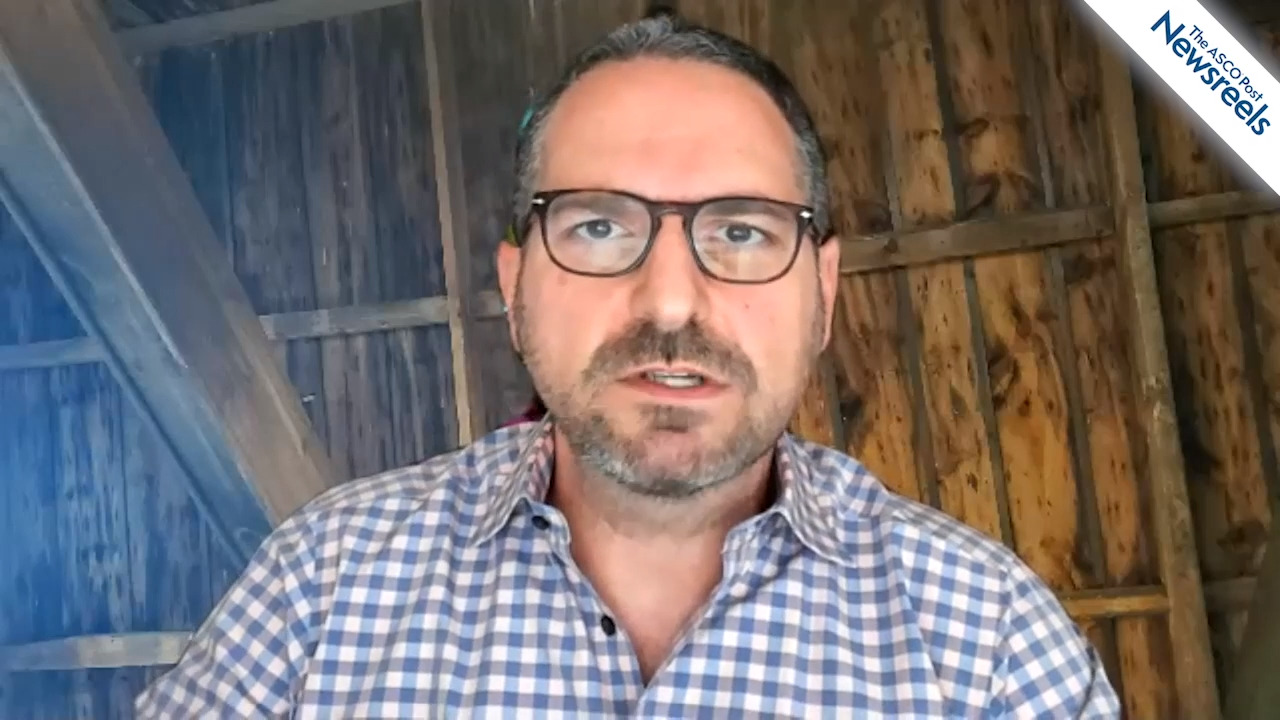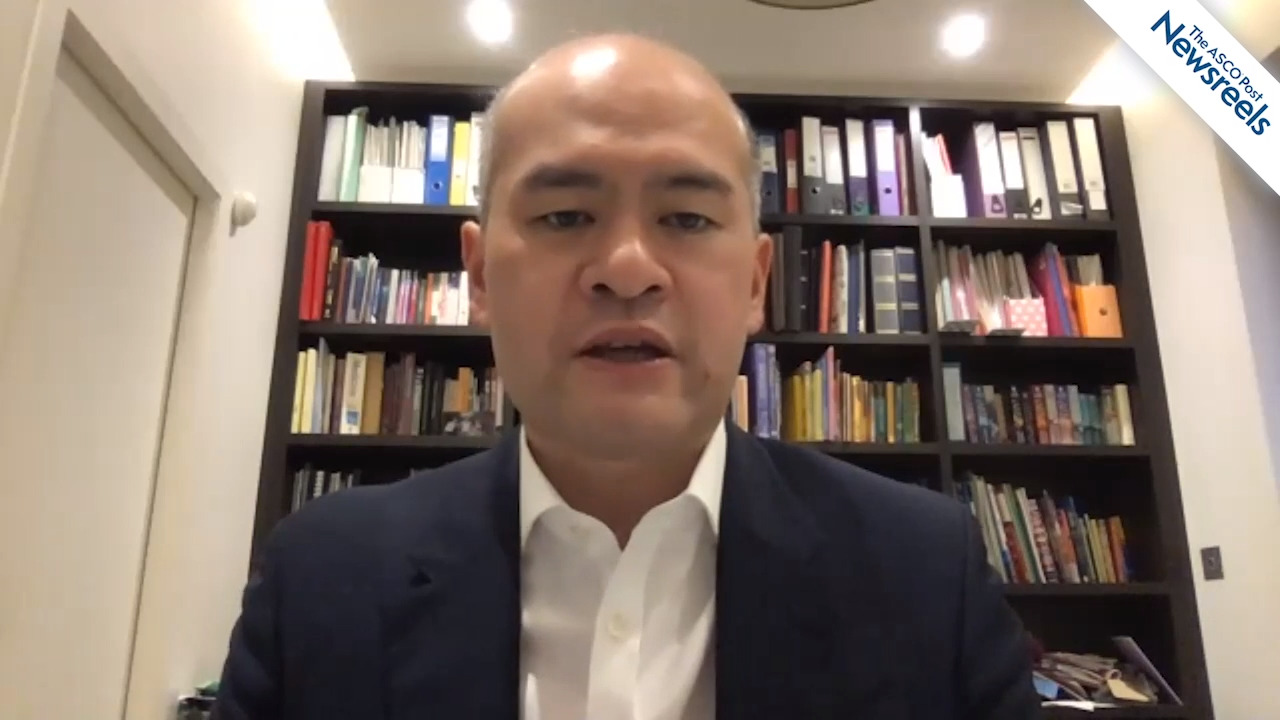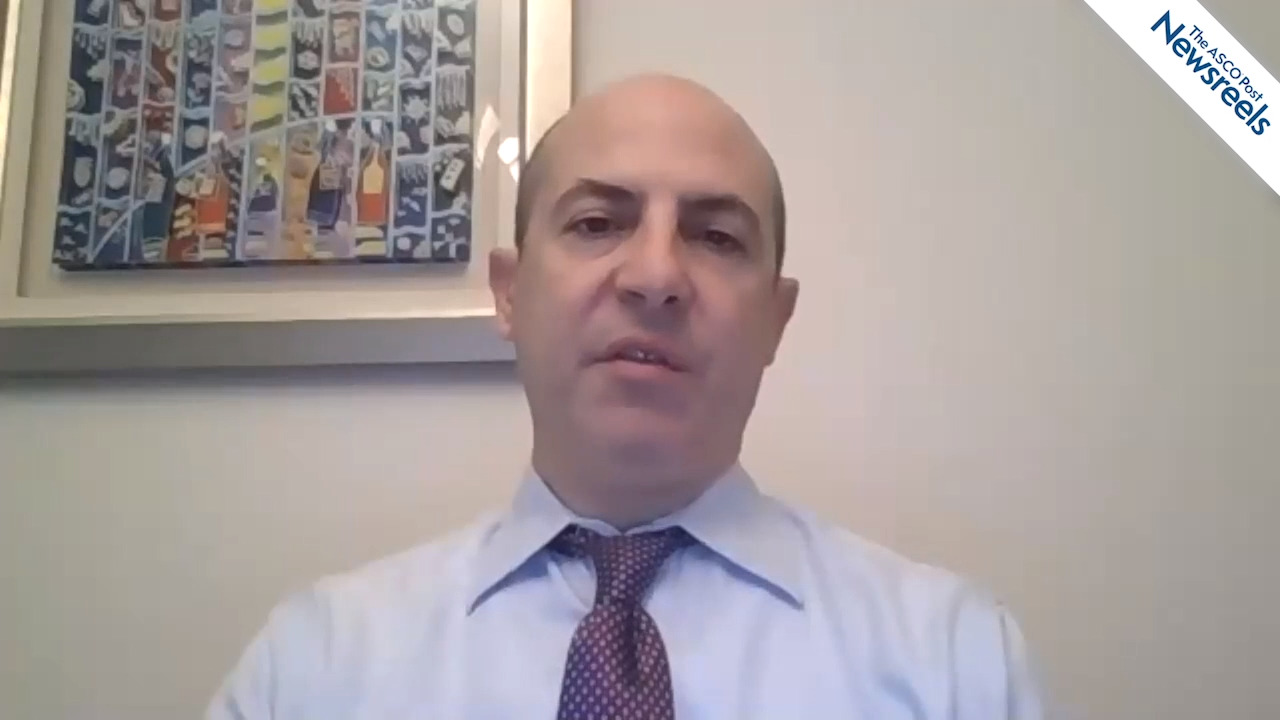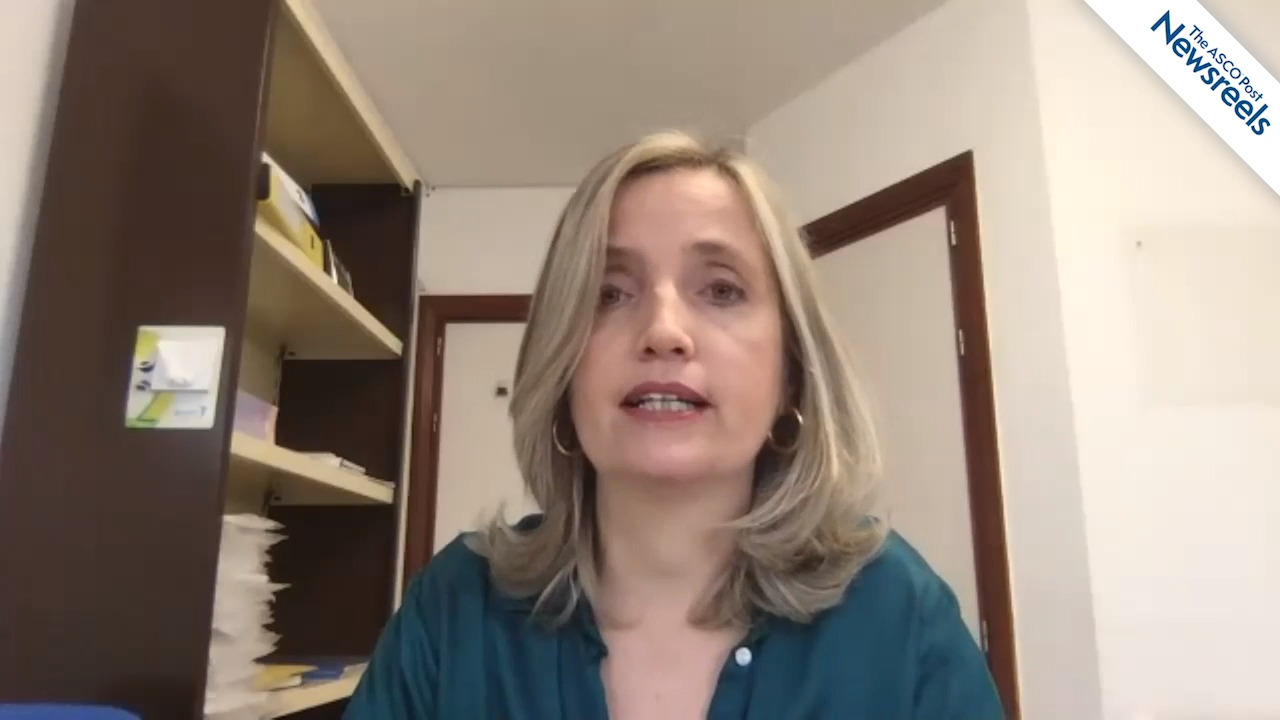Thierry André, MD, on Mismatch Repair–Deficient Solid Cancers: Safety and Efficacy of Dostarlimab
2021 Gastrointestinal Cancers Symposium
Thierry André, MD, of Hôpital Saint-Antoine, discusses results from the GARNET study, which showed that dostarlimab, an anti–PD-1 antibody, demonstrated durable antitumor activity in patients with mismatch repair–deficient colorectal and noncolorectal solid tumors. No new safety signals were detected, and most treatment-related adverse events were of a low grade (Abstract 9).
The ASCO Post Staff
Matthew H.G. Katz, MD, of The University of Texas MD Anderson Cancer Center, discusses findings from the Alliance A021501 study, which showed that administering mFOLFIRINOX before surgery was associated with a favorable overall survival rate relative to historical data in patients with borderline resectable adenocarcinoma of the pancreas (Abstract 377).
The ASCO Post Staff
Tenna V. Henriksen, PhD Candidate, of Aarhus University, discusses her findings on how circulating tumor DNA may help assess recurrence risk and the benefit of adjuvant therapy, and more quickly detect early relapse after treatment in patients with colorectal cancer (Abstract 11).
The ASCO Post Staff
Kai-Keen Shiu, MD, PhD, of the University College Hospital NHS Foundation Trust - London, discusses an interim analysis of PFS 2 results (defined as time from random assignment to progression on the next line of therapy or death) from the phase III KEYNOTE-177 trial. This study has already shown that first-line pembrolizumab provides a clinically meaningful and statistically significant improvement in PFS compared with chemotherapy in patients with microsatellite instability–high metastatic colorectal cancer (Abstract 6).
The ASCO Post Staff
Zev A. Wainberg, MD, of UCLA Medical Center, discusses phase II results from the FIGHT study, which combined bemarituzumab with modified FOLFOX6 in first-line treatment of advanced gastric/gastroesophageal junction adenocarcinoma. This is reportedly the first randomized trial of any FGFR inhibitor, validating this target in gastric cancer (Abstract 160).
The ASCO Post Staff
Rocio Garcia-Carbonero, MD, of Hospital Universitario 12 De Octubre, discusses results of the phase II/III AXINET trial, which showed that axitinib plus long-acting release octreotide improved overall response compared with placebo and octreotide in patients with advanced grade 1 or 2 extrapancreatic neuroendocrine tumors. However, no significant improvement in progression-free survival was observed (Abstract 360).





